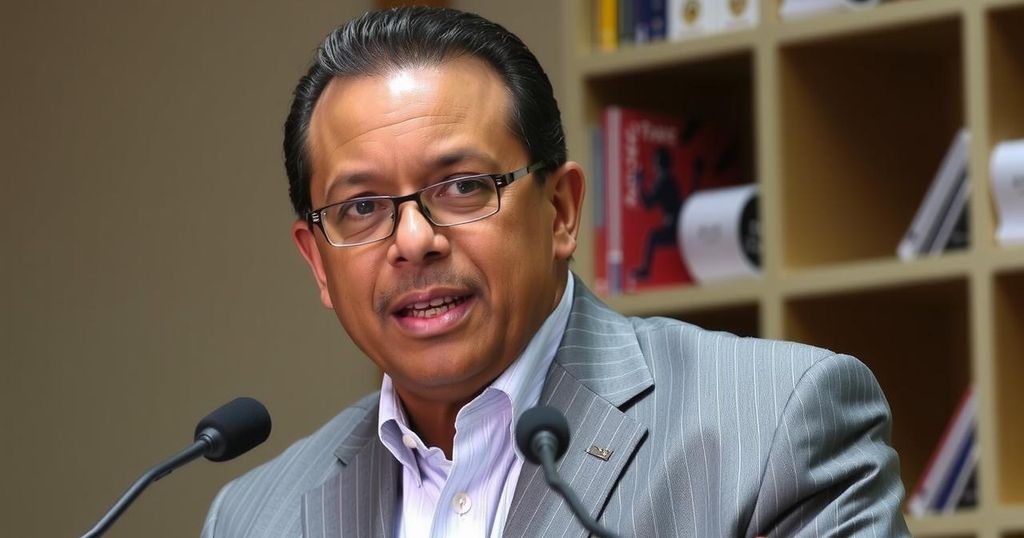Abandoning Elections: A New Year’s Resolution for Genuine Democracy

The article argues for rethinking the value of elections in achieving democracy, citing the disillusionment and manipulative practices seen in the 2024 elections. It emphasizes the need for alternative democratic processes that empower citizens rather than relying solely on traditional electoral mechanisms. Key voices advocate for reforms such as citizen assemblies and participatory budgeting, urging a shift from mere electoral participation to more substantial forms of democratic engagement.
In reflecting upon the upcoming year, I propose a radical New Year’s resolution: to abandon the pursuit of elections altogether. The dissonance that exists between elections and genuine democratic governance has become increasingly apparent, particularly in the tumultuous year of 2024, which witnessed immense electoral activity across the globe. Instead of yielding positive transformations, this wave of elections exacerbated autocratic tendencies, instigated violence, and left many communities disillusioned. The chasm between the ideal of democracy and the reality of electoral processes necessitates a reevaluation of our belief in elections as a means to achieve democratic governance.
The year 2024 was marked by over seventy nations holding elections, affecting 4 billion individuals. Hopes were high that these elections would foster democracy and instigate beneficial change. Rather, evidence indicates that elections served as instruments of oppression. Numerous instances illustrate how elections were manipulated, with incumbent leaders employing tactics such as imprisoning or disqualifying opposition candidates and allowing violence to erupt, with tragic consequences in multiple jurisdictions worldwide. This trend reflects an alarming shift, with an increasing number of electoral outcomes being challenged not just by losers but by winners who exploit their victories to undermine democratic institutions.
Key commentators have articulated this crisis clearly, with Josh Lerner from People Powered asserting, “Our obsession with elections is killing democracy.” This sentiment captures the growing skepticism regarding the efficacy of elections in delivering genuine democratic representation. Election-related violence and manipulative practices tarnish the democratic process, compelling citizens to become disenchanted with the electoral system.
Despite a few positive developments in certain nations where incumbents lost power, these transitions often resulted in further strife and instability. As political divisions deepen, the need for alternative methods of governance becomes increasingly important. Leonora Camner of Democracy Without Elections has advocated for a reformulation of democratic processes to genuinely empower citizens. The suggestion that elections are counterproductive to democracy underscores a broader call for structural change.
Post-election discourse has generated significant propositions for enhancing democratic engagement. Matt Leighninger of the National Civic League has articulated potential reforms including the introduction of citizen assemblies, participatory budgeting, and enhancements to civic infrastructure—all aimed at equipping individuals to take a more active role in governance. These changes underscore a critical pivot towards inclusive democratic practices that transcend traditional electoral mechanisms.
In conclusion, the events of 2024 elucidate a vital reality: a reexamination of our reliance on elections is imperative. The pursuit of a more substantive democracy calls for a greater focus on empowering individuals to shape their governance directly. Thus, the New Year may provide an opportune moment for us all to reconsider our commitment to elections and to actively champion initiatives that promote true democratic engagement.
The discussion centers around the notable disillusionment with electoral processes as a mechanism for achieving genuine democracy. In light of the 2024 elections, which were global in scope yet often marred by autocratic behaviors and violence, there emerges a need to distinguish between elections and authentic democratic governance. As numerous countries grappled with electoral manipulation, the effectiveness of elections in fostering democracy has come under scrutiny, prompting advocates to propose alternative forms of democratic engagement that prioritize citizen empowerment over traditional election-centric narratives.
The analysis of the 2024 electoral landscape reveals a stark reality: elections, rather than serving as the bedrock of democracy, can undermine it. The call for alternative methods of democratic engagement highlights the urgency for reforms that empower citizens more directly. As we move into a new year, it is critical to challenge our unwavering faith in elections and to advocate for innovative approaches that truly foster democratic governance and civic participation.
Original Source: www.vcstar.com







